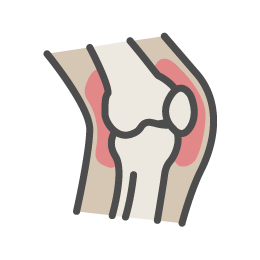Dr. Bucala is on Doximity
As a Doximity member you'll join over two million verified healthcare professionals in a private, secure network.
- Connect with other colleagues in the same hospital or clinic
- Search all U.S. specialist profiles and refer a patient
- Read the latest clinical news and earn CME/CEU credits
Office
300 Cedar Street
New Haven, CT 06520Phone+1 203-785-2454Fax+1 203-785-5415- Is this information wrong?
Summary
- Richard Bucala, MD, PhD, is Chief, Section of Rheumatology, Allergy & Immunology and the Waldemar Von Zedtwitz Endowed Professor of Medicine, Pathology, and Epidemiology & Public Health. He studies the regulation of the immune system with a focus on how protective responses can lead to immunopathology and disease. His laboratory’s main emphasis is MIF-family cytokines, their role in genetic susceptibility to disease, and their therapeutic targeting for different clinical conditions. The Bucala group is credited with the molecular cloning of MIF and discovery of its critical role in regulating glucocorticoid immunosuppression, which opened novel approaches to therapy in autoimmune inflammatory conditions. His lab also identified the MIF receptor and discovered common polymorphisms in the MIF gene, which show global population stratification. Depending on the nature of the immune or invasive provocation, variant MIF alleles protect from disease or contribute to immunopathology in autoimmunity and in different infections and chronic conditions. His laboratory developed biochips for application to genetic epidemiology studies of malaria and tuberculosis in resource-limited settings and his research is leading efforts to develop MIF-based therapies tailored to an individual’s genetic makeup. The laboratory has developed new therapies such as the anti-MIF antibody (Imalumab) and contributed to the FDA-approved anti-MIF receptor antibody (Milatuzumab). Research partnerships in structure-based drug design have led to novel small molecule MIF modulators for use in autoimmune, oncologic, and infectious diseases. The function of the MIF-like genes expressed by the parasites responsible for malaria, leishmaniasis, and helminthic infection also are under investigation. As these proteins were discovered to uniquely suppress immunologic memory, they offer new targets for vaccination against these infections.
Education & Training
 New York Presbyterian Hospital (Cornell Campus)Fellowship, Rheumatology, 1988 - 1991
New York Presbyterian Hospital (Cornell Campus)Fellowship, Rheumatology, 1988 - 1991 Brigham and Women's HospitalResidency, Internal Medicine, 1986 - 1988
Brigham and Women's HospitalResidency, Internal Medicine, 1986 - 1988 Weill Cornell MedicineClass of 1986
Weill Cornell MedicineClass of 1986
Certifications & Licensure
 CT State Medical License 2002 - 2024
CT State Medical License 2002 - 2024 NY State Medical License 1988 - 2002
NY State Medical License 1988 - 2002- American Board of Internal Medicine Rheumatology
Awards, Honors, & Recognition
- Elected Member The American Society for Clinical Investigation, 1996
Publications & Presentations
PubMed
- "Rounding Third Base and Heading Home": Arthritis & Rheumatology in 2024.Daniel H Solomon, Mariana J Kaplan, Peter A Nigrovic, Richard Bucala> ;Arthritis & Rheumatology. 2024 Apr 4
- Potential role of RhoA GTPase regulation in type interferon signaling in systemic lupus erythematosus.Fan, W., Wei, B., Chen, X., Zhang, Y., Xiao, P., Li, K., Zhang, Y., Huang, J., Leng, L., Bucala, R.> ;Arthritis Research & Therapy. 2024 Jan 20
- A small molecule macrophage migration inhibitory factor agonist ameliorates age-related myocardial intolerance to ischemia-reperfusion insults via metabolic regulation.Wang, H., Slotabec, L., Didik, S., Li, Z., Leng, L., Zhao, B., Li, J., Bucala, R.> ;Metabolism. 2024 Apr 1
- Join now to see all
Journal Articles
- Macrophage Migration Inhibitory Factor Mediates Metabolic Dysfunction Induced by Atypical Antipsychotic TherapyJia Li, Lawrence Young, Richard Bucala, The Journal of Clinical Investigation
- Macrophage Migration Inhibitory Factor Regulates U1‐snRNP Immune Complex Mediated Activation of the NLRP3 InflammasomeRossitza Lazova, Richard Bucala, Insoo Kang, Arthritis & Rheumatology
Press Mentions
 An End to Malaria?August 22nd, 2022
An End to Malaria?August 22nd, 2022 Yale Team Creates Rheumatology Curriculum in RwandaMay 2nd, 2023
Yale Team Creates Rheumatology Curriculum in RwandaMay 2nd, 2023 Nobody Has My Condition But MeJanuary 23rd, 2023
Nobody Has My Condition But MeJanuary 23rd, 2023- Join now to see all
Grant Support
- Pilot ProjectsNational Institute Of Allergy And Infectious Diseases2011
- Innate And Adaptive Immune Mechanisms In ArthritisNational Institute Of Arthritis And Musculoskeletal And Skin Diseases2009–2011
- Mechanisms Of Rheumatoid Synovial Fibroblast ActivationNational Institute Of Arthritis And Musculoskeletal And Skin Diseases2002–2011
- MIF And The Host Response To InfectionNational Institute Of Allergy And Infectious Diseases2002–2011
- Innate And Adaptive Mechanisms In ArthritisNational Institute Of Arthritis And Musculoskeletal And Skin Diseases2004–2008
- Suppression Of Erythropoiesis In Malaria InfectionNational Institute Of Allergy And Infectious Diseases2004–2008
- MIF And The Host Response To InfectionNational Institute Of Allergy And Infectious Diseases1998–2001
- MIF And Parasitic DiseasesNational Institute Of Allergy And Infectious Diseases1994–1997
Professional Memberships
- Clinical Member
Viewing the full profile is available to verified healthcare professionals only.
Find your profile and take control of your online presence:










